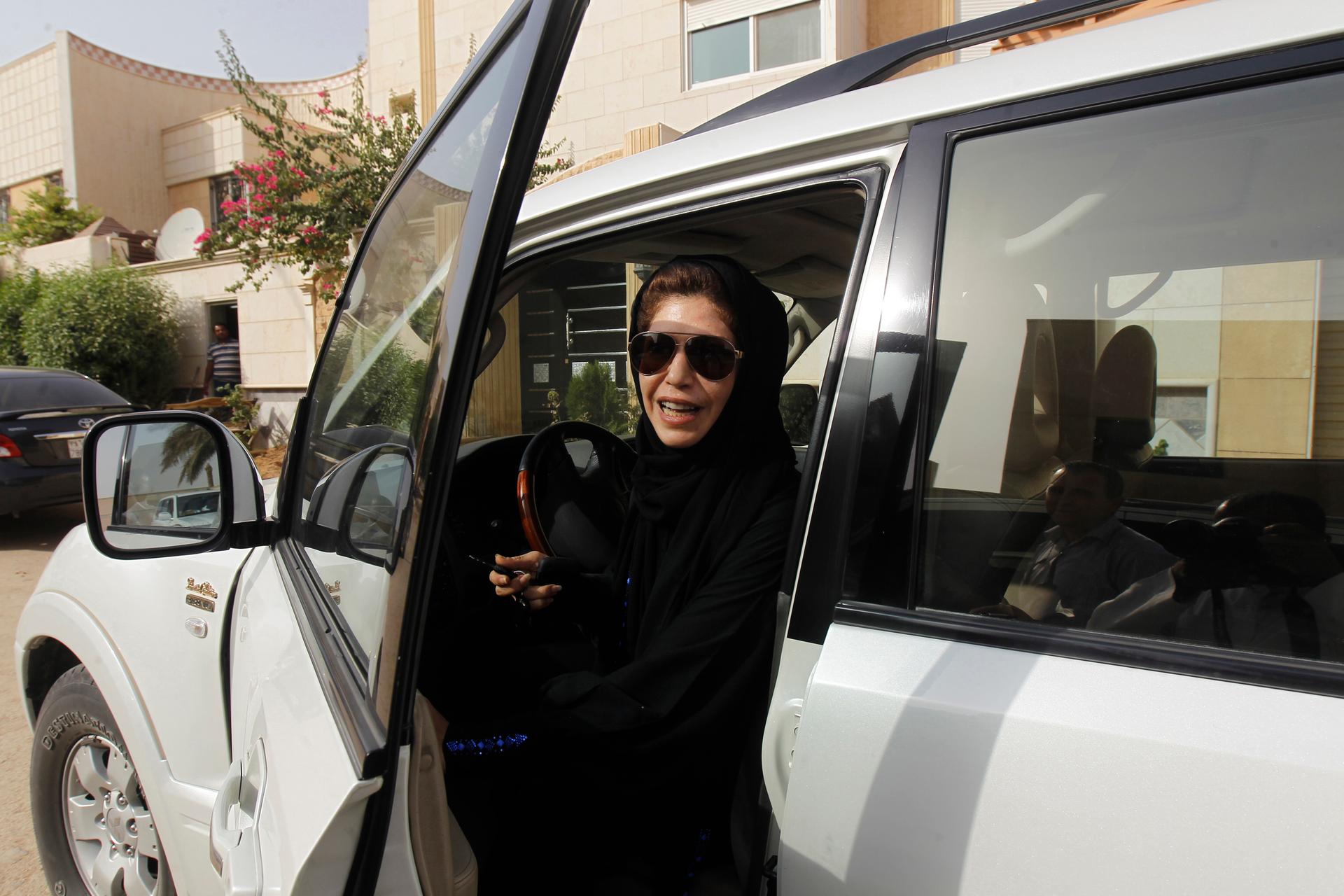Women take the wheel across the Middle East, and not everyone is pleased
Azza Al Shmasani alights from her car after driving in defiance of the ban in Riyadh, Saudi Arabia in 2011.
Women in Saudi Arabia secured the right to vote two years ago, but when it comes to driving, many women say they haven't reached their destination. And on Saturday, October 26, some planned to protest by driving.
The Saudi kingdom hasn't officially outlawed female drivers. But the government won't issue licenses to women and public pressure keeps most off the road.
Three major campaigns in recent years have tried to end the driving prohibition, but the most recent is the largest. It began on social media sites and now has an online petition with near 17,000 signatures. Saudis on both sides of the debate have used viral videos, Facebook and Twitter to build an online dialogue.
One video that has seen heavy traffic on YouTube this week was reportedly filmed in the eastern city of Dhahran. It shows men in long white robes in a parking lot. They're heckling women in head scarves as the women approach their cars. One woman kicks a man who grabs her companion.
Advocates for a woman's right to drive include prominent Saudis, among them a Saudi-Kuwaiti artist named Shams. She's well-known for including political themes in her music, including her latest hit "It's Our Right to Drive." She released it last month to coincide with the recent protests.
Two years ago, activist Manal al-Sharif was arrested after she uploaded a video of herself urging Saudi women to drive. Since then, she has been an outspoken advocate of the campaign.
"As far as I know women in Saudi Arabia have been always complaining about the ban," she said in a speech at a TED conference earlier this year.
"It's been 20 years since anyone tried to do anything about it. A whole generation ago."
Throughout Saudi Arabia, the tensions over driving continue to build. Over 100 clerics gathered in the capital this week to protest the "Western influence" they say stirred the movement.
Meanwhile the Saudi government walks a fine-line. Some women reported Friday they received calls from government ministries warning them not to drive. Activist Najla al-Hariri publicly asked women not to get behind the wheel on Saturday as planned "out of caution and respect for the interior ministry's warnings," according to Agence France-Press.
Meanwhile, the campaign resonates with women elsewhere in the Middle East. In many countries including Bahrain, Lebanon, Yemen and Iraq, female taxi drivers aren't hard to find.
The online conversation continues on Twitter and in YouTube videos of scarved women at the wheel. It's one platform where the protest would be hard to shut down.
Every day, reporters and producers at The World are hard at work bringing you human-centered news from across the globe. But we can’t do it without you. We need your support to ensure we can continue this work for another year.
Make a gift today, and you’ll help us unlock a matching gift of $67,000!
